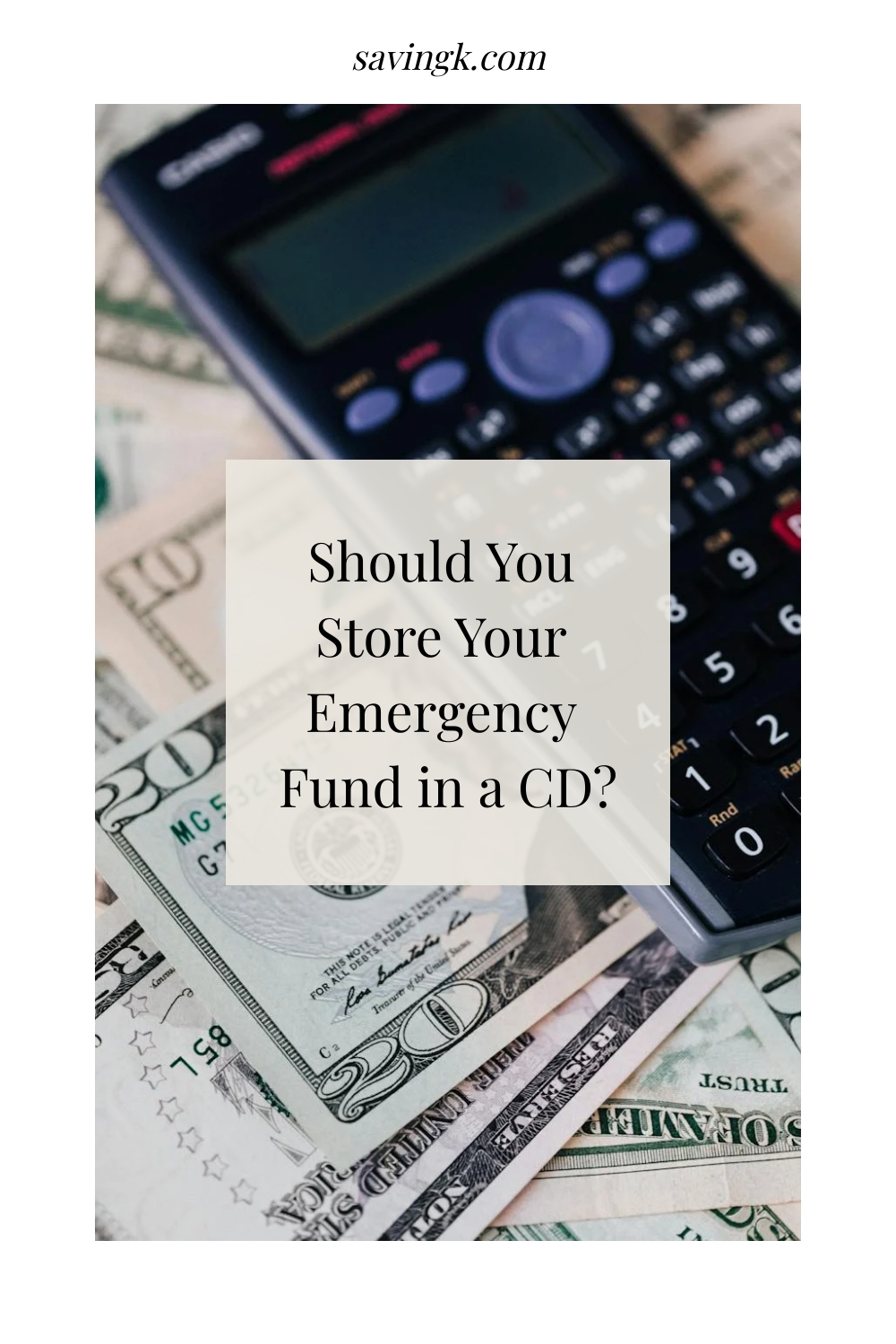
A certificate of deposit (CD) is a safe place to store your savings. But with fixed terms that restrict withdrawals, they may not be the perfect option for an emergency fund.
When an emergency can strike at any time, you need to be able to access your emergency savings at any time, too.
Before making a final decision, learn how the average CD works — from the pros and cons to everything in between, including what to do if your savings ever run short.
Contents
What is a Certificate of Deposit?
A certificate of deposit is a savings product that promises a guaranteed rate of return. You generally agree to keep your funds in a CD for a fixed term. Your savings will grow with interest until its maturity date, at which point you may choose to withdraw or reinvest.
Your maturity date will depend on the product and your financial institution. Some can be as short as a single month. Others lock your funds away for a decade.
Generally speaking, the longer you let your CD mature, the more interest you will earn. The shortest CDs may offer roughly 1% APY, while the longest CDs boast a 7% APY.
The Significance of a Fixed Term
Your emergency fund is supposed to be available quickly as soon as your emergency arrives. Due to the unpredictable nature of emergencies, you can’t expect them to line up perfectly with your term. You might need your savings weeks, months, or even years before your CD matures.
You can withdraw funds early, but you will pay a large fine. How you pay is usually tied to how much interest you would earn over a set period.
Is Withdrawing Early Worth It?
In an emergency, you have to determine whether paying a fine is worth accessing your money.
While a fine sounds scary, it might not be as bad as you think. Some people voluntarily break this contract outside of emergencies. They might transfer funds to a new account earning more interest, knowing they’ll come out on top, even accounting for the fine.
Compare this fine to the interest you would pay on a direct deposit loan. What are online direct deposit loans and their costs? You have to shop around from different online direct lenders to see the rates you qualify for.
Borrowing money online might make sense for your budget if direct deposit loans are cheaper than the fine on an early withdrawal. But if your fine is negligible, it could be worth withdrawing your funds early to handle an emergency out of pocket.
Let’s Recap:
What are the pros of a CD?
-
- Most CDs offer 2–3% on deposits, although some savers may qualify for more than 5%.
- This product diversifies your investment portfolio.
- It’s safer and more reliable than stocks.
- Savings are FDIC-insured up to $250,000.
What are the cons of a CD?
- Most people will not qualify for the highest interest rates.
- The average saver will qualify for rates comparable to high-yield savings accounts.
- Withdrawing funds before your maturity date will incur fines and other penalties.
- It may require a $2,500 initial deposit, which may be hard considering how slowly Americans save.
Bottom Line
A CD might work for short-term savings you know you won’t touch in two or more years. It’s a great way to ease into investing, even if you still owe debt.
As for an emergency fund you could need tomorrow, another high-interest account might be better.





